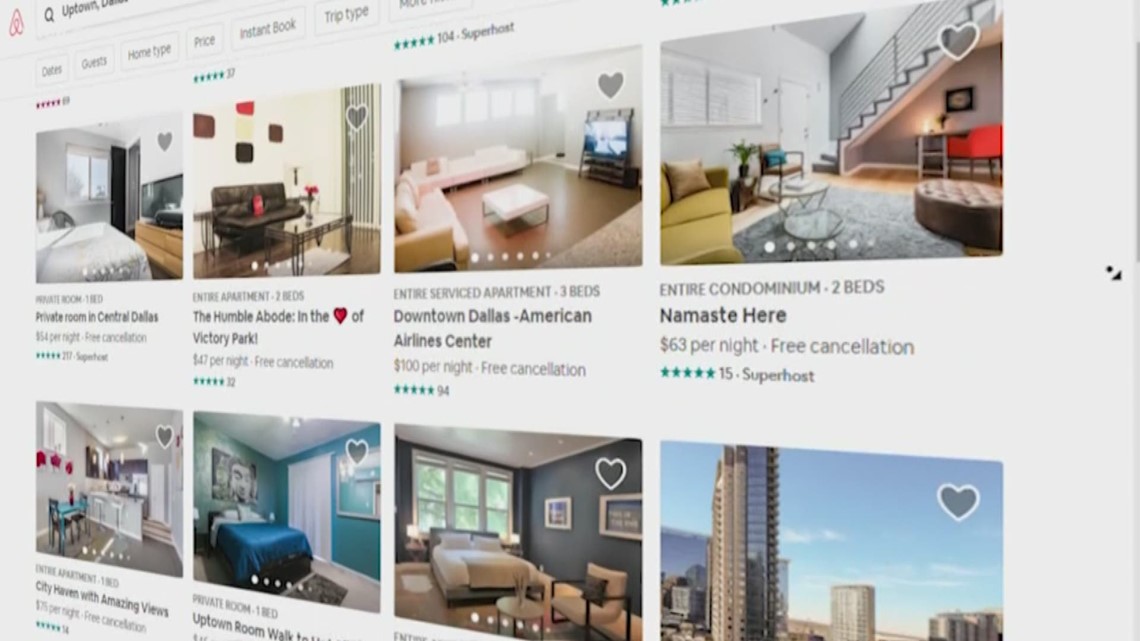Fort Worth city leaders consider short-term rental regulations
On Thursday, Fort Worth city leaders held another meeting to discuss proposed short-term rental regulations.
FORT WORTH, Texas — They’ve become a popular choice: short-term rentals, like Airbnb rentals.
Cities across the country, including Fort Worth, are grappling with how to handle short-term rentals.
The question elicits mixed feelings from residents.
This week, the city held two town hall meetings to discuss how it might handle short-term rentals, or STRs, in the future.
In a public hearing on Tuesday, city leaders heard strong opinions from people on both sides of the issue.
Fort Worth resident Mike Holt spoke out against STRs.
“They had broken into my house, entered my hot tub and lit my fireplace,” Holt said.
Another resident, Cassie Warren, said she supported STRs, which gave her the opportunity to invest and earn extra income.
“They are needed in Fort Worth. What we disagree on is where they should be located,” Warren said.
On Thursday, city leaders held another public meeting, where they answered questions and provided more information about the city’s proposed STRs and regulations.
Deputy city manager Dana Burghdoff said the city has been responsive in its approach to STRs. In the future, the city could take a more proactive approach.
“We would like to know if the council wants to be more proactive, in which case we would need to hire code officers,” Burghdoff said. “If most of STR’s business happens with single-family homes, then those are not legal today.”
Under the current city ordinance, STRs are only permitted in certain parts of the city, which include areas with businesses and mixed-use commercial and residential areas. STRs are not legally permitted in residential areas of Fort Worth.
Now the city is considering four different zoning options.
Here is a breakdown of what each of the four options entails:
- Option 1: Retain current zoning ordinance (continue to require rezoning for short-term rentals in residential zoning
- Option 2: Treat STRs as bed and breakfasts, which would require conditional use permits and zoning changes. This option would have a five-year term and would require renewal. It would not allow STRs in single-family zoning, only in multi-family units.
- Option 3: Allow owner-occupied short-term rentals by conditional use permit in all residential neighborhoods, up to 5-10% of the block or multi-family building. This option would require a permitting process and a zoning change.
- Option 4: Allow owner-occupied STRs in certain neighborhoods or citywide in up to 5-10% of the block or multi-unit building. This option would limit reservations to 30 nights per year and would require a conditional use permit and zoning changes.
City leaders are ready to consider feedback from residents during public sessions and online polls and will revisit the issue in mid-August. An exact timeline for a decision has not been determined, Burghdoff said.
Until then, the locals will continue to clash over the heated debate.


Comments are closed.